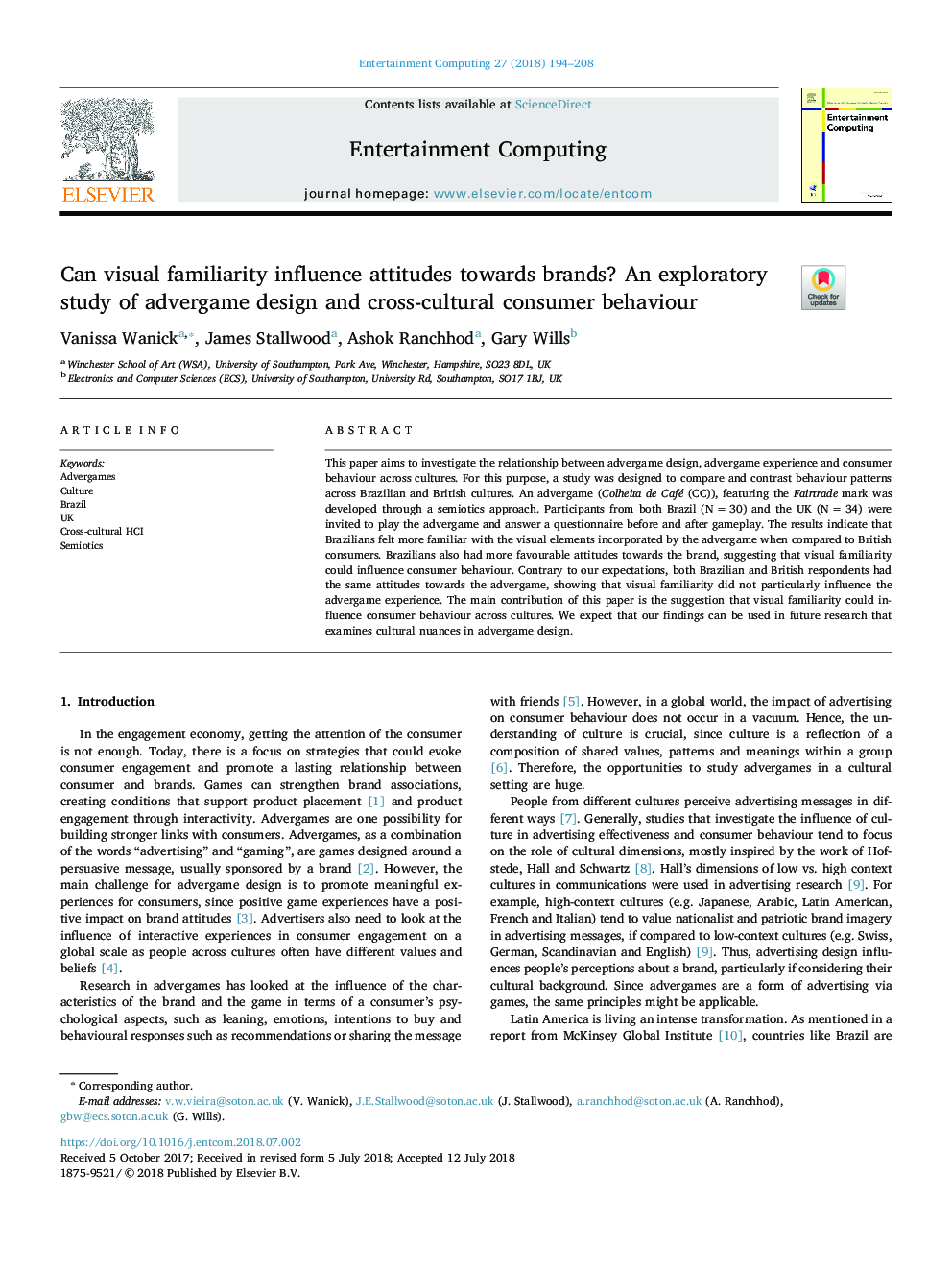| Article ID | Journal | Published Year | Pages | File Type |
|---|---|---|---|---|
| 6854588 | Entertainment Computing | 2018 | 15 Pages |
Abstract
This paper aims to investigate the relationship between advergame design, advergame experience and consumer behaviour across cultures. For this purpose, a study was designed to compare and contrast behaviour patterns across Brazilian and British cultures. An advergame (Colheita de Café (CC)), featuring the Fairtrade mark was developed through a semiotics approach. Participants from both Brazil (Nâ¯=â¯30) and the UK (Nâ¯=â¯34) were invited to play the advergame and answer a questionnaire before and after gameplay. The results indicate that Brazilians felt more familiar with the visual elements incorporated by the advergame when compared to British consumers. Brazilians also had more favourable attitudes towards the brand, suggesting that visual familiarity could influence consumer behaviour. Contrary to our expectations, both Brazilian and British respondents had the same attitudes towards the advergame, showing that visual familiarity did not particularly influence the advergame experience. The main contribution of this paper is the suggestion that visual familiarity could influence consumer behaviour across cultures. We expect that our findings can be used in future research that examines cultural nuances in advergame design.
Keywords
Related Topics
Physical Sciences and Engineering
Computer Science
Artificial Intelligence
Authors
Vanissa Wanick, James Stallwood, Ashok Ranchhod, Gary Wills,
